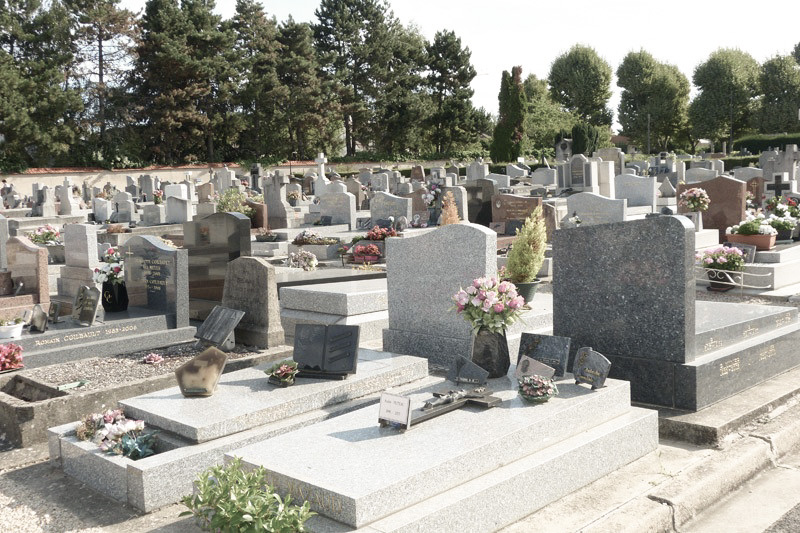
How to organize a body repatriation to France?
A death abroad and the repatration of a body to France requires families to carry out numerous procedures. Discover everything there is to know in this particular situation.The repatriation to France of a loved one who has passed away abroad is a difficult time, and the repatriation procedures in France make the event even more distressing. What should you do during repatriation to France? Here are the steps to follow.
The different steps to follow for repatriation to France after the death of a loved one abroad:
Estimated duration: 7 days- Contact the authorities
It is essential that you and your relatives, as well as the French authorities in the country of death, are informed of the situation as soon as possible.
Different situations may arise:
- You are informed of the death, but the French authorities are not. The first instinct should be to contact the French consular authorities in the country where the death occurred.
- You learn the news through the media, travel agency, or other sources. In this case, you should contact the Crisis Center of the Ministry of Europe and Foreign Affairs.
- You or your relatives have not been informed of the death. In this case, the embassy or consulate will contact you. Information must be collected to determine the identity of the deceased, which will take more or less time for the authorities. The French gendarmerie or police services will come to announce the death to you as soon as possible so that you can quickly make arrangements.
- You are living abroad at the time of death. In this scenario, the French consulate in your place of residence will inform you.
- Declare the death
Most of the time, the death is registered with the local civil registry, as for residents of the country. Declaring the death locally is mandatory, but declaring it in France is optional. However, it is strongly recommended to do so, as you will obtain a death certificate that will allow you to carry out many procedures (such as inheritance matters).
The consulate is responsible for transcribing the local death certificate into the French civil registry. You will then be able to obtain about ten copies from the central civil registry service in Nantes or from the diplomatic and consular post.
The mention of death will be recorded on the deceased's French birth certificate.
- The handover of the body

Before handing over the body to the family, the identity of the deceased must be established with certainty by the authorities. Some circumstances of death may prolong the process, for example, following a terrorist attack. The identification procedures can then take several days.
It is also possible that the technical and scientific services may ask you for the deceased's belongings to take samples or inquire about physical characteristics. For example, the presence of a mole or a birthmark on the body.
The consular services and the Crisis Center ensure that you are kept informed of the progress by contacting you regularly.
Please note: if criminal proceedings were underway in France at the time of death, forensic medical examinations will need to be conducted. The public prosecutor or investigating magistrate must then issue a burial permit for the body to be handed over to the family.
In this case, the body is not immediately available, and several days will be required to perform the examination of the body.
- Prepare the funeral
You can decide to bury or cremate the deceased in the country of death or choose to repatriate them to France.
The French consular services help you organize the funeral:
- They can provide you with an estimate of the various costs related to the funeral in the country where the death occurred (burial or cremation on-site, repatriation to France).
- They help you contact local or French funeral agencies that operate abroad.
- They assist you in transferring money from France to the country.
- They ensure that the deceased's identification documents and personal belongings are delivered to you.
You can then reach out to us to organize the funeral in France: contact us at +33 9 77 55 39 39 or get an online quote.
- Repatriate the body to France
If you decide to repatriate the body to France, you will need authorization to transport the body or ashes.
This will be granted to you by the Consulate after you provide them with a few pieces of information:
- A written document from the family requesting repatriation.
- Authorization from the person in charge of the place where the body was transferred (e.g., the mortuary).
- The written agreement from the doctor who certified the death.
All costs are the responsibility of the family. However, repatriation to France can be expensive, depending on the country of departure. Some financial aids are available to cover part or all of the repatriation costs.
Upon the deceased's arrival in France, the body must be buried within the following 14 days. The prefect of the department where your loved one is to be laid to rest can grant exemptions if circumstances warrant it.
Psychological support
The Crisis Center offers psychological support and assistance to families and loved ones who have lost someone close to them. They can put you in contact with the victim assistance association in your area.
Also, you can contact the France Victimes association whether you are in France or abroad. Their telephone line is open every day from 9:00 am to 7:00 pm.
- Number from France: 116 006
- Number from abroad: +33 (0)1 80 52 33 76





